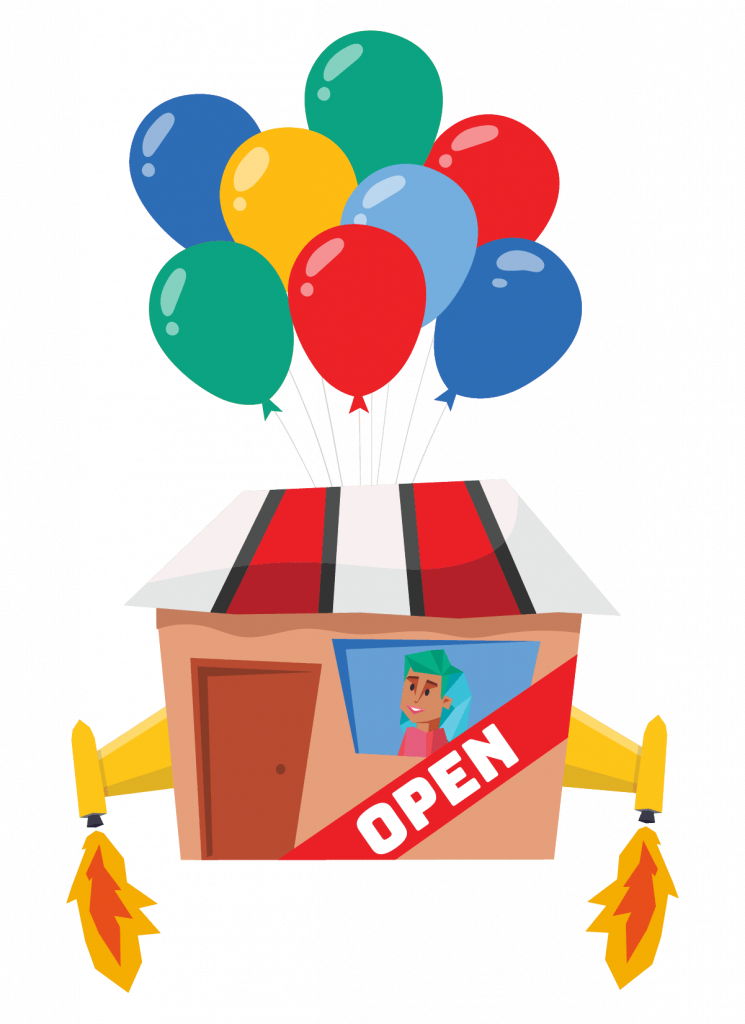How to Get a Business License in Massachusetts

Needing a business license is just a fact of life when running a company in most states, and Massachusetts is no exception. All businesses in the Commonwealth require some form of licensing to operate, whether that means a state-level sales tax certificate, permits for selling regulated goods, professional licenses, or local business licenses and permits at the city and county level. Here’s what you’ll need to know to get a business license in Massachusetts.
Massachusetts Sales and Use Tax Registration
Unlike some states, Massachusetts does not have one state-level license that every business is required to obtain, but most businesses will need to get a Sales and Use Tax Registration Certificate. This certification allows your business to collect the 6.25% state sales tax on transactions for goods or services—and without it, your business can’t legally operate in Massachusetts. So if you’re starting a Massachusetts business where you sell a product or provide a service, you’ll definitely need this certificate.
Tip: Whether you’re ready to start your business today or still feeling things out, Northwest can help. Get a free account with Northwest today and access the resources and tools you’ll need to either do it yourself or hire us to help. No obligations.
How do I get a Massachusetts sales and use tax certificate?
First, you’ll need to get your business registered with MassTaxConnect. You will need to provide the following information:
- Type of business entity (for example, corporation or LLC)
- Your Employer Identification Number from the IRS (if you don’t have an EIN, you will need to apply for one)
- Legal and mailing addresses
- Business start date
- Contact information, titles and Social Security numbers of your business officers
- If a nonprofit, your IRS determination letter recognizing it as a 501(c)(3) organization
Registration is free, and does not require renewal.
After you register your business, the state Department of Revenue will send you a copy of your Sales and Use Tax Registration Certificate, which must be displayed at your business where customers can easily see it.
For more information on sales and use tax, check out this guide by the Massachusetts Department of Revenue.
Massachusetts State Licenses for Regulated Goods
Selling certain federally regulated items requires a state license or permit from the Massachusetts authority that controls such sales. Regulated goods include firearms, cannabis, alcohol and tobacco. Different licenses may be required depending on if you are a retailer or manufacturer of these products.
Firearms
You must apply for a license to sell firearms and ammunition, or to work as a gunsmith. While licensing is controlled by the Executive Office of Public Safety and Security, you will need to submit your application to the police department in the jurisdiction of your place of business.
Cannabis
The state Cannabis Control Commission issues licenses for any marijuana-related businesses. The application process is done through the Commission portal, but the Commission also provides an extensive guide to the licensing process.
Alcohol
Regulated by the state Alcoholic Beverages Control Commission, licenses for alcohol depend on whether the applicant is a retail seller or not. Retail alcohol sales, such as at restaurants and grocery stores. are licensed at the local level, as are “one-day” licenses for events. All other alcohol-related industries, including wineries, breweries, warehouses and transportation are directly licensed through the ABCC. ABCC applications are done through their ePLACE Portal. Massachusetts provides detailed information about state and local retail alcoholic beverage licensing at Mass.gov.
Tobacco
The Department of Revenue issues licenses for tobacco products. Separate licenses apply for retailers and distributors, and for three different categories of goods: cigars and smoking tobacco, cigarettes, and electronic nicotine delivery systems. Applications can be filed through your MassTaxConnect account, and examples of application forms are available from the Department of Revenue.
When do restricted goods licenses need renewed?
Alcohol, tobacco and cannabis licenses must be renewed annually, while firearm sales licenses last for three years.
Other licenses for restricted goods
Alcohol, tobacco and firearms require federal licenses to operate. Local licenses and permits may also apply. For example, to sell tobacco in Boston, you will need to file an application for a permit from the city’s Public Health Commission, along with a $500 application fee. Links for local liquor licensing can be found on this list provided by the ABCC.
Massachusetts Professional Licenses
Any business requiring specialized training for safe operation requires a professional license—from tattoo artists and barbers to contractors and engineers, up to doctors and lawyers. Massachusetts state boards regulate these professions and issue licenses to applicants who meet their certification standards. This often means meeting certain educational and training requirements, even after certification, and can include proof of liability insurance.
You can find your relevant licensing authority at the Division of Occupational Licensure or Mass.gov’s Professional Licenses & Permits directory. Food safety licenses can be applied to with the Department of Public Health.
Local Massachusetts Business Licenses
Local license requirements for businesses vary from city to city. Check with your city or county government to see what licenses may be required. You will need to obtain any local licenses required for your business in both your home location and in any other part of Massachusetts you do business.
Some common local licenses and permits include:
- Zoning and land use permits
- Building permits
- Alcoholic beverage licenses
- Health department permits
- Fire department permits
Federal Business Licensing
While not required for most businesses, some industries do require federal licenses to do business—especially ones pertaining to restricted goods such as alcohol, firearms or explosives; pertain to environmental safety, like wildlife-related activity, commercial fishing or mining; or which may cross state lines, like aviation, transportation and broadcasting; as well as others. Federal licenses are issued by the agency which regulates that industry.



